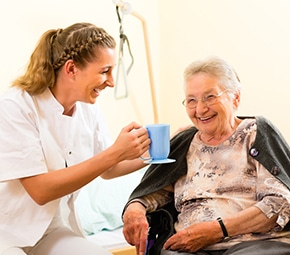Just like any other muscle, the brain should also be constantly strengthened to maintain a healthy lifestyle. For many Americans already battling the long-term effects of dementia and Alzheimer’s, taking care of the brain is both crucially important and in many cases, difficult.
Alzheimer’s disease accounts for 60 to 80 percent of dementia cases which significantly reduces a person’s ability to perform everyday tasks. Granted, there is no miracle cure for these diseases that have unfortunately touched so many lives and families, but there are ways to temporarily improve symptoms varying from memory loss to the inability to focus and pay attention.
Understanding Memory Care
The first step in understanding how to aid a loved one suffering from the symptoms of dementia is to find service in specifically designed fields called “memory care”. This field is crucial and dedicated to essentially “working out” the brain as if it were any other muscle.
Instead of lifting weights and running laps, residents at Angels Senior Living get the opportunity to interact in an enriching environment that will build their cognitive functions and reduce some temporary effects of symptoms.
Memory care is a long-term option that offers a person experiencing issues with their memory to maintain a level of independence but allows this person to have the safety and security of a quick response from professional staff.
Activities Aide in Memory Care
Some activities that memory care uses to assist in the quality of life for residents are often everyday tasks. Something as simple as washing the dishes and remembering to flip the cup over to ensure it dries fully, or calmly folding clothes while separating the lights from the darks, all play a significant role in exercising the mind.
Working to train the brain to be active again with these simple tasks can help to fight the symptoms of memory loss. The memory care that is offered at Angels Senior Living are incorporated into each resident’s life to ensure an independent, yet supervised quality of life.
This helps each resident control how they socialize, being able to participate in common mealtime spaces, and be a part of activities that get them up and outside for their enjoyment. Memory care is a stress free and functionally sound program that is designed to care for your loved ones.
The most important role that Angels Senior Living assumes is the ability to provide the proper care and the environment where that care can thrive. Many times someone battling the effects of dementia tends to get frustrated and confused by the symptoms ailing them. Our memory care programs ensure the therapeutic validation that is so often a vital deterrent of unnecessary stress.
For more information on our memory care programs and how we can accommodate those who need this service, call us at (877) 480-2244. You can also look for a memory care community using our tool if you’re ready to search.






